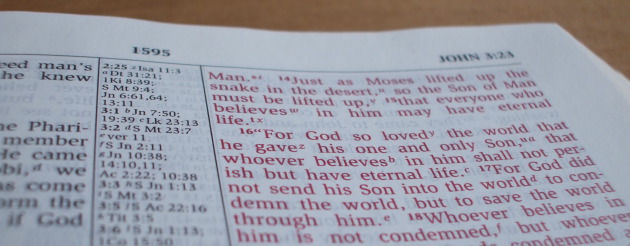Lent
Lent is the period of the Christian liturgial year from Ash Wednesday through Holy Thursday. It is a time of repentance, fasting and preparation for the coming of Easter, and a time for self-examination and reflection. In the early church, Lent was a time to prepare new converts for baptism.
The use of ashes related to repentance and sorrow has a long history in Jewish and Christian practice, but the specific use of ashes on the forehead related to the beginning of Lent only began around the 10th century and was widespread by the 11th century. It is nto a completely ancient practice and is perhaps a result of a shift in emphasis of Lent from preparation for baptism to the journey of penitents to get good standing in the church once again.

Our church has a Lenten study program every year. We traditionally meet in members' homes as a reminder of Jesus going into homes to teach and minister to the people. COVID-19 will require a brief change.
2021 Lenten Study
We are doing a study of the Psalms using Dietrich Bonhoeffer's Psalms: The Prayer Book of the Bible. We will meet from 5:00 to 6:30 PM on February 21 and 28; March 7, 14, 21, and 28; and April 4. Purchase your book, and sign up with the church secretary.
Amazon
ASIN: 0806614390
2017 Lenten Study
TheLast
Supper
The Paoli United Methodist Church presented the Last Supper as a play.
2016 Lenten Study
There were two programs: Bible study on Sunday nights, five weeks studying the book of Isaiah, and Lenten study on Thursday nights using John Maxwell's Partners in Prayer. Pastor LaMont said that this book "... is the first book I would recommend the congregation read. Using Psalm 25:4-5, John Maxwell describes how prayer changes us. First God shows us his ways. Then God teaches us how to follow his path and last of all God continues to guide us. So with the Bible as a primary resource and this book as your secondary resource your prayer power is strengthened."
Amazon
ASIN: 0785274391
The United Methodist Church has a number of resources for Lent and Easter, including some suggestions for Lenten reading.
The original name for the period was the Greek Τεσσαρακοστή or Tessarakostē, meaning the "Fortieth Day" before Easter (Sundays not being counted as each is a "mini-Easter"). In the late Middle Ages, when sermons began to be given in the local languages, Germanic-speaking areas came to use a word referring to the noticably increasing length of the days during this season — Lenz in German or Lente in Dutch.
The forty days of Lent represent the time Jesus spent in the wilderness resisting the temptations of the devil.
Jesus returned from the Jordan full of the Holy Spirit and was led by the Spirit into the desert, where he was tempted by the Devil for forty days. In all that time he ate nothing, so that he was hungry when it was over.
The Devil said to him, "If you are God's Son, order this stone to turn into bread."
But Jesus answered, "The scripture says, 'Human beings cannot live on bread alone.'"
Then the Devil took him up and showed him in a second all the kingdoms of the world. "I will give you all this power and all this wealth," the Devil told him. "It has all been handed over to me, and I can give it to anyone I choose. All this will be yours, then, if you worship me."
Jesus answered, "The scripture says, 'Worship the Lord your God and serve only him!'"
Then the Devil took him to Jerusalem and set him on the highest point of the Temple, and said to him, "If you are God's Son, throw yourself down from here. For the scripture says, God will order his angels to take good care of you. It also says, They will hold you up with their hands so that not even your feet will be hurt on the stones."
But Jesus answered, "The scripture says, 'Do not put the Lord your God to the test.'"
When the Devil finished tempting Jesus in every way, he left him for a while.
Then Jesus returned to Galilee, and the power of the Holy Spirit was with him. The news about him spread throughout all that territory. He taught in the synagogues and was praised by everyone.
— Luke 4:1-15 (Good News Translation)
The Back Door study group discussed C. S. Lewis' take on the Lenten season:
The Lenten Season is devoted to what theologians call "contrition". During Lent, we often hear prayers in one form or another that ask God to give us contrite hearts. Contrite, translated from Latin, means crushed or pulverized. We are expected to feel contrition because we are "Miserable Offenders" against God's law.
Many modern people may complain that they do not want their hearts to be pulverized — they prefer to have their hearts soar as free spirits. Furthermore, they may feel unjustly accused and even insulted that the Christians have labeled them as "Miserable Offenders". Do you sometimes feel this way?
C. S. Lewis addresses this issue in another short essay entitled "Miserable Offenders".